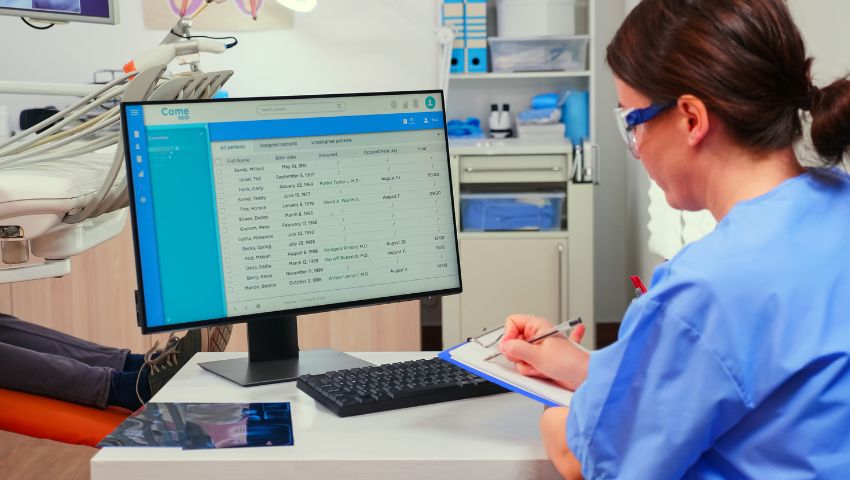
Table of Contents
- Introduction
- The Need for AI in IVF
- How AI Enhances Embryo Selection
- Predictive Analytics for Treatment Success
- Streamlining Clinic Operations
- Balancing Technology with Human Care
- Challenges and Ethical Considerations
- FAQs
- Conclusion
Introduction
In vitro fertilization (IVF) has transformed the way couples and individuals approach parenthood, yet the process remains complex and emotionally taxing. The emergence of AI-powered IVF offers a new layer of precision, efficiency and personalization. By merging the skill and intuition of fertility specialists with the analytical capabilities of artificial intelligence, clinics are redefining success rates and patient experiences.
The Need for AI in IVF
Traditional IVF relies heavily on specialist experience, but variables such as embryo quality, hormonal responses, and implantation timing can be difficult to predict. AI bridges these gaps by analyzing vast datasets—from patient history to genetic information—to guide evidence-based decisions. This data-driven approach enhances accuracy, reduces trial-and-error cycles, and helps fertility specialists create more effective treatment plans.
How AI Enhances Embryo Selection
One of the most significant applications of AI in IVF is embryo assessment. High-resolution imaging combined with machine learning algorithms can evaluate embryo viability more objectively than the human eye alone. By examining subtle developmental patterns, AI helps embryologists identify embryos with the highest implantation potential, improving outcomes and reducing the number of cycles needed.
Predictive Analytics for Treatment Success
AI’s predictive models analyze historical case data and patient-specific variables to forecast treatment success rates. This enables fertility specialists to:
- Recommend the most effective protocols
- Anticipate possible complications
- Adjust stimulation dosages in real time
Such precision helps patients make informed choices while minimizing both cost and emotional stress.
Streamlining Clinic Operations
Beyond the lab, AI-powered IVF platforms assist with operational efficiency. Automated scheduling, digital patient monitoring, and intelligent reporting reduce administrative workloads. This means fertility specialists can focus more on patient interaction and less on paperwork, while patients benefit from faster updates, smoother communication, and more transparent treatment tracking.
Balancing Technology with Human Care
While AI brings speed and accuracy, fertility treatment is deeply personal. Human expertise remains essential in interpreting AI outputs, counseling patients and addressing emotional concerns. The most effective IVF programs treat AI as a decision-support tool, not a replacement for the empathy, experience and ethical judgment of a qualified fertility specialist.
Challenges and Ethical Considerations
The integration of AI in IVF also presents challenges:
- Data Privacy – Sensitive medical and genetic information requires robust protection.
- Algorithm Bias – AI models must be trained on diverse datasets to avoid skewed predictions.
- Regulatory Compliance – Adherence to medical and ethical guidelines is critical.
Addressing these concerns ensures that AI remains a trustworthy partner in reproductive healthcare.
FAQs
Q1: How does AI improve IVF outcomes?
AI analyzes vast datasets to create personalized treatment plans, increasing the likelihood of successful embryo implantation and pregnancy.
Q2: Can AI replace doctors in IVF?
No. AI supports doctors by providing data-driven insights but cannot replace their clinical expertise and patient care.
Q3: Is AI-based IVF more expensive?
While some AI tools may add upfront costs, they can reduce the number of unsuccessful cycles, saving money in the long run.
Vitrify Pricing Plans
| 20 – 50 License | 50 – 100 License | 100+ License | |||
| Perfect for growing clinics needing flexible, scalable IVF management and secure operations. | Ideal for mid-sized clinics managing high patient volumes with seamless efficiency and care. | Built for large clinics demanding powerful, enterprise-level IVF solutions and complete scalability. | |||
| $19.99 Month/License |
$219.99 Year/License |
$17.99 Month/License |
$197.99 Year/License |
$15.99 Month/License |
$175.99 Year/License |
|---|---|---|---|---|---|
| ✔Appointment Scheduling | ✔Appointment Scheduling | ✔Appointment Scheduling | |||
| ✔Couple Registration | ✔Couple Registration | ✔Couple Registration | |||
| ✔Patient Records Management | ✔Patient Records Management | ✔Patient Records Management | |||
| ✔Basic Reporting | ✔Basic Reporting | ✔Basic Reporting | |||
| ✔Basic Invoicing | ✔Basic Invoicing | ✔Basic Invoicing | |||
| ✔Email Reminders | ✔Email Reminders | ✔Email Reminders | |||
| ✔SMS Reminders* | ✔SMS Reminders* | ✔SMS Reminders* | |||
| ✔WhatsApp Reminders* | ✔WhatsApp Reminders* | ✔WhatsApp Reminders* | |||
| ✔Essential Support | ✔Essential Support | ✔Essential Support | |||
| ✔MIS Reporting | ✔MIS Reporting | ✔MIS Reporting | |||
| ✔IVF Medical Record Management | ✔IVF Medical Record Management | ✔IVF Medical Record Management | |||
| ✔ART Cycle Management | ✔ART Cycle Management | ✔ART Cycle Management | |||
| ✔IVF Procedure Recording | ✔IVF Procedure Recording | ✔IVF Procedure Recording | |||
| ✔Basic Billing | ✔Basic Billing | ✔Basic Billing | |||
| ✔Limited Data Export (PDF) | ✔Limited Data Export (PDF) | ✔Limited Data Export (PDF) | |||
Conclusion
AI-powered IVF is not about replacing specialists but enhancing their capabilities. By merging human expertise with machine intelligence, IVF clinic management software helps fertility clinics improve outcomes, streamline operations, and deliver more personalized care. This powerful combination makes the journey to parenthood smoother, smarter and more hopeful than ever.